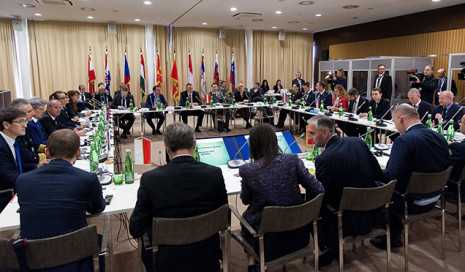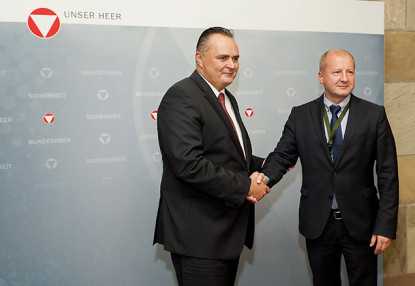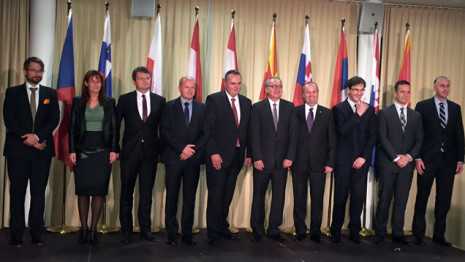István Simicskó: Regional Cooperation Has Become More Important in Europe
Szöveg: honvedelem.hu / MTI | 2016. november 8. 11:34On Monday, 7 November, after the first working session at the meeting of the Central European Defence Cooperation (CEDC) held in Austria, Minister of Defence Dr. István Simicskó told Hungarian news agency MTI that regional cooperation has become more important in Europe, so the discussion focused on collaboration and the joint protection of external borders.

According to the minister, the countries participating in the meeting all agreed that the events of 2015 – when hundreds of thousands of illegally arriving migrants moved across Europe – must not happen again. He also noted that the countries present at the CEDC meeting have taken or are going to take a number of security and legal measures that are similar to those already implemented by Hungary.
At the meeting, the minister stated that Hungary has adopted a definite position on the issue of legal migration. “We are in solidarity with the European Union and are protecting the external borders of Europe. However, we would like to make decisions on our own, within the bounds of the nation state, about whom we would like to live with", the minister pointed out. István Simicskó maintains that instead of the issue of mandatory relocation quotas, the EU should be striving to implement effective roadmaps for peace in the migrants’ countries of origin.
Speaking at a press briefing following the discussion, Austrian Defence Minister Hans Peter Doskozil stated that “the situation of the Balkans has crucial importance for maintaining European stability". He promised that Austria would provide assistance by offering 30 night vision devices to Serbia and 40 transport vehicles to Bulgaria. Furthermore, he urged that the states affected by the Western Balkans migration route receive financial support from the EU.

Mr. Doskozil announced that the ministers of the interior of CEDC countries will be involved in drawing up an action plan in case the agreement between Turkey and the EU would “fail", adding that he thinks this possibility must be taken into account. In his opinion, this agreement has not been adhered to so far, because only a few refugees have been forced to return to Turkey, and their numbers have tripled on the Greek islands. In answer to a question, he said we cannot exclude the possibility of even more refugees arriving in Europe if the agreement between the EU and Turkey fails.
The Monday meeting held at Frauenkirchen, Burgenland was attended by the relevant ministers of the Czech Republic, Austria, Slovakia, Poland, Hungary, Croatia and Slovenia, as well as representatives from another three invited countries affected by the refugee crisis, namely Serbia, Macedonia and Montenegro. On Tuesday, the discussions are to continue in Sarajevo, where the participants will review the current state of the EU-led military operation EUFOR ALTHEA in Bosnia-Herzegovina. This year Austria is holding the presidency of the CEDC.

Photo: Csaba Krizsán (MTI) and Ministry of Defence